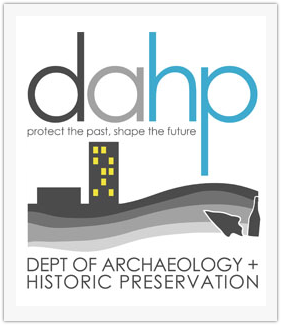PUBLIC ARCHAEOLOGICAL FIELD SCHOOL AT FORT VANCOUVER NATIONAL HISTORIC SITE
Jun 16, 2011
VANCOUVER, WA - Superintendent Tracy Fortmann has announced the 2011 Public Archaeology Field School at Fort Vancouver Portland State University, Washington State University Vancouver, the National Park Service, Northwest Cultural Resources Institute, and the Fort Vancouver National Trust are pleased to announce the tenth field school in historical archaeology at Fort Vancouver National Historic Site. “This unique National Park Service program is a signature educational program for the Pacific Northwest,” said Fortmann. “For ten seasons, this school has trained undergraduate and graduate students from around the nation, and internationally, in historical archaeology and the preservation of cultural resources.” This year’s field school will continue its exploration of Fort Vancouver’s multicultural Village (also known as “Kanaka Village”). This colonial village was the largest settlement in the Pacific Northwest in the 1830s and 1840s. It contained people from all over the world and the Pacific Northwest, including Native Hawaiians, the Métis, and people of many different American Indian tribes. The field school will provide a means to recapture the history of this multicultural worker’s village and to engage the modern Portland/Vancouver area in the unique history of their closest National Park site. “It is fitting that this program’s tenth year is focused on the Village as it symbolizes the early history of diversity in the Pacific Northwest,” said Doug Wilson, Director of the NPS-Northwest Cultural Resources Institute and Adjunct Associate Professor at Portland State University. “The partnership with the universities has allowed us to better understand the lives of this multicultural community from the things they left behind. This legacy project allows us to better understand our own increasingly diverse Portland-Vancouver metropolitan area.” In a new component of the field school, students will help to record the condition of grave markers at Vancouver’s Old City Cemetery. This cemetery on Mill Plain and Grand Boulevard has been subject to significant recent vandalism. Students will record grave markers from the 19th and early 20th centuries to learn about the history of Vancouver and to set a baseline condition for the headstones to help in their protection and management. “We are conducting this project to help train students, but also to serve the City of Vancouver and the Central Park neighborhood Association,” said Wilson. “We hope to bring additional attention to this amazing historical place that has such a close tie to Fort Vancouver.” Fort Vancouver National Historic Site is an unparalleled archaeological laboratory, comprising the remains of Fort Vancouver, the ca. 1825-1860 regional headquarters and supply depot for the Hudson’s Bay Company, and Vancouver Barracks, the first (ca. 1849-2010) permanent U.S. Army post and command center in the Pacific Northwest. The field school will run from June 16 through July 23, 2011 at Fort Vancouver National Historic Site. The public is welcome to visit Tuesday through Saturday, from 9:00 am to 4:00 pm. More information about the history of the Village is available on the park’s website at: www.nps.gov/fova/historyculture/the-village.htm




